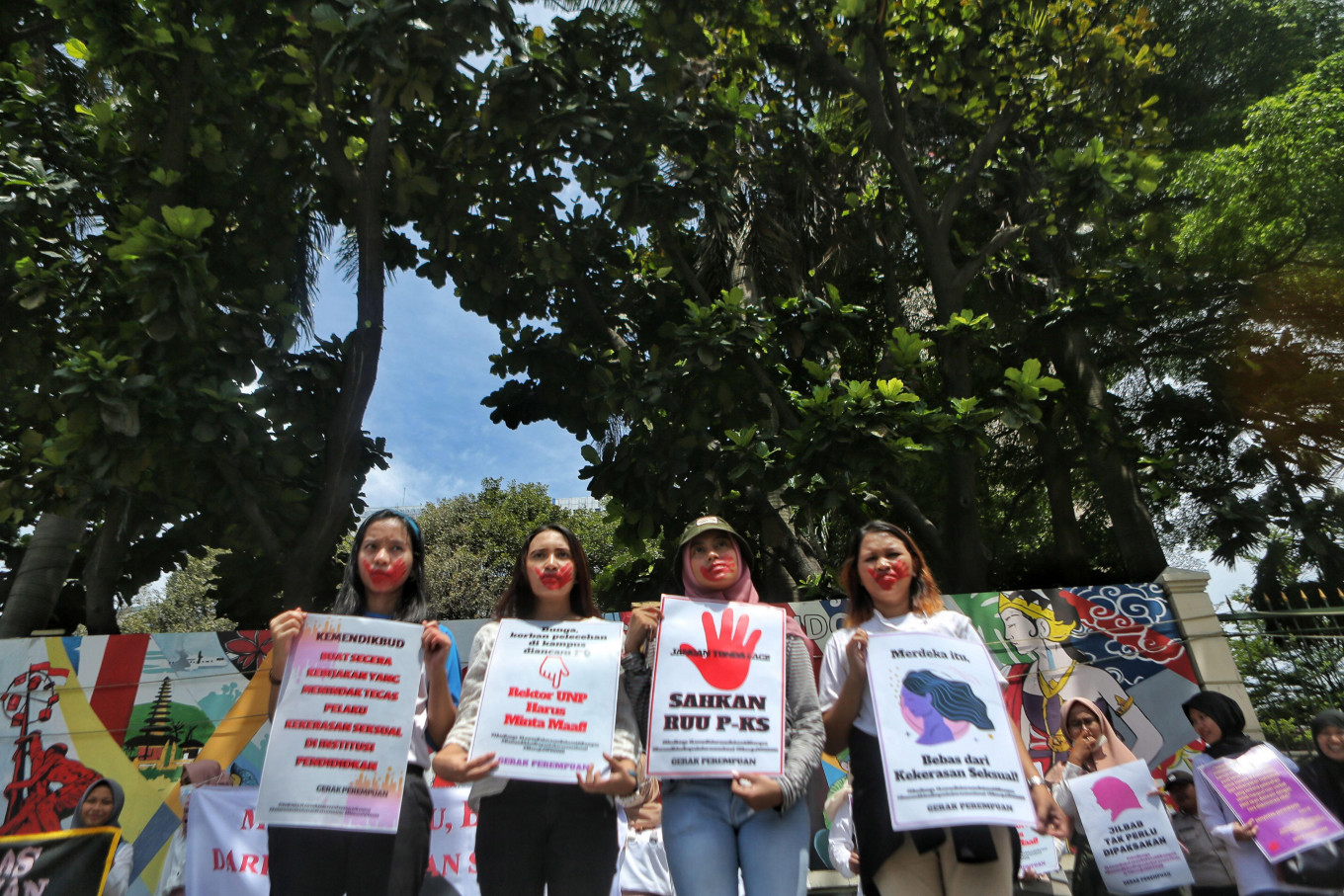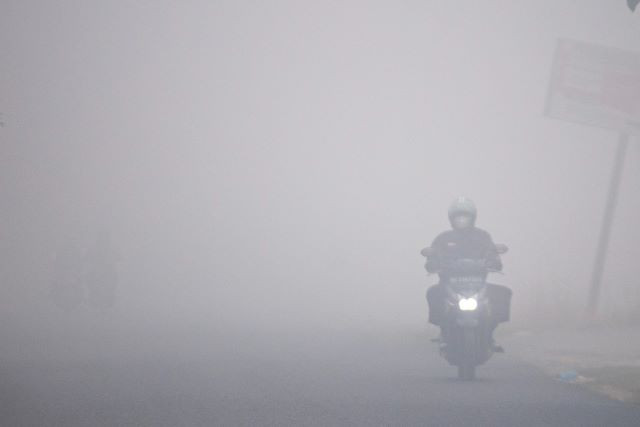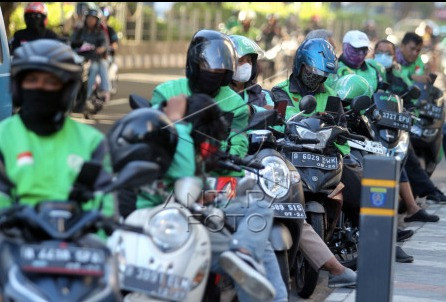'Difficulties' surrounding sexual violence eradication bill
The next fight is to ensure that the bill can be included in the 2021 priority list. There are several crucial issues in regard to this.
Change Size
 Students and activists from Women's Movement against Violence Alliance (Gerak Perempuan) participate in a rally in front of Education and Culture Ministry on Feb. 10, 2020. They demand for the end of sexual violence in the education institutions. (JP/Seto Wardhana)
Students and activists from Women's Movement against Violence Alliance (Gerak Perempuan) participate in a rally in front of Education and Culture Ministry on Feb. 10, 2020. They demand for the end of sexual violence in the education institutions. (JP/Seto Wardhana)
O
span>On Thursday, the House of Representatives’ Legislation Body (Baleg) officially dropped the long-sought after sexual violence eradication bill from this year’s National Legislation Program (Prolegnas) priority list, along with 15 other bills on the list. Marwan Dasopang, deputy chairman of House Commission VIII, said this was because of the “difficulties” in arranging the bill's deliberation.
A 2019 report by National Commission on Violence Against Women (Komnas Perempuan) showed the ever-increasing rate of sexual violence in Indonesia. At least 35 women and girls were sexually abused every day between 2001 and 2011. The report also recorded a 14 percent increase in cases of violence against women to a total of 406,178 cases. These are red flags.
Indonesia’s prevailing laws do not recognize the definition and complexity of sexual violence. For example, the Criminal Code (KUHP) only recognizes forcible penile penetration of a woman’s vagina as rape. The law does not recognize other forms of sexual violence including sexual harassment. This is one of the reasons why the sexual violence eradication bill is critical to improving the protection of women across the country.
If there are “difficulties”, the lawmakers should look at society, particularly at the women who have for years waited in vain for the bill to be passed, along with the real difficulties and hardships faced by sexual abuse survivors and their families.
Read also: ‘Don't let us fight by ourselves’:The women who fight to make Indonesia a safer place
The discussions on the bill between the House (Commission VIII) and government had been ongoing since last year. From the initial planning process as mandated by Law No. 12/2011 on the drafting of laws and regulation, the bill had officially been put on the Prolegnas priority list in 2017. In the plenary meeting it was decided that the bill would be discussed at the Baleg, which agreed that the contents of the bill were important in providing protection to the public against sexual violence.
As the normal legislative process of a law, the House then sent the bill to President Joko “Jokowi” Widodo. Through a presidential letter, dated June 2, 2017, the President assigned the women’s empowerment and child protection, health, social affairs, administrative and bureaucratic reform, law and human rights, and home ministers, either individually or as a group, to represent the government in the deliberation of the bill. Soon after that, in June 2017, the government submitted a problem-inventory list as a counterpart document to the bill for further deliberation.
After a long pause, in August 2019 the deliberation of the bill commenced. During that period, from 2017 to 2019 thousands of victims of sexual violence were denied justice and their rights, while efforts to prevent and enforce the law sat in abeyance.
The bill was then transferred from Baleg to Commission VIII. There were several deliberation meetings between the government and Commission VIII, until finally it was decided that the bill could not be passed. The Prosperous Justice Party (PKS) was strongly against it, arguing that the bill promoted the legalization of adultery and lesbian, gay, bisexual and transgender (LGBT) sexual orientations, despite the fact that the bill makes no mention of LGBT issues at all.
Interestingly, even with a minimum of representatives in the working committee (Panja) of the bill, comprising only a deputy chairperson and one member, among the 26 members of the Panja, the strength of PKS influence on the other Panja members could be discerned without “difficulty”.
It was really a “difficult” time for those members of the public who fought for the bill, particularly the victims. In addition, there was also confusion about whether the bill was to be carried over as regulated by Article 71 of the 2019 amendment to Law No. 12/ 2011. Unfortunately, this article does not clearly regulate technical implementation of carry-over bills. The public supporting this bill must face “difficulties” again.
It can be construed that the process of deliberation must start again from zero. Will the House use the 2017 version of the bill again, or will it propose a new one? This remains unclear. Another thing that was not widely revealed in the public was that on March 31 the chairperson of Commission VIII sent a letter to the House speaker regarding the removal of the bill from the Commission VIII’s initiative. Since that date, the commission has effectively canceled its position as initiator of the bill. Therefore, the House speaker must coordinate with Baleg to clarify whether it is still willing to continue the deliberation of the bill.
Unfortunately, while the initiator process of the bill at Baleg is still not yet clear, the coordination meeting of Baleg with the head of the commissions on June 30, decided to remove the sexual violence eradication bill from the 2020 priority list, and it will be subject to further discussion on the possibility of listing it on next year’s Prolegnas.
The next fight is to ensure that the bill can be included in the 2021 priority list. There are several crucial issues in regard to this.
First, who will be the initiator of the bill? It could be individual lawmakers, together as a group, or in factions. Secondly, the House’s internal process itself, will the bill be discussed by Commission VIII or Baleg? Third, which version of the academic script and bill will be determined as the initiative by the House, and then sent to the President? To note, the current version of the academic script and bill dated Feb. 10, 2017, failed to find agreement to be enacted, because of many controversial issues in the deliberation. Most likely, the initiator will think twice before submitting this version again. An alternative is perhaps more appropriate.
What version of the academic script and bill is expected, especially by the victims of sexual violence? What is required from the academic script is at least: a comprehensive theoretical study of empirical practice to form the framework of the urgency of the bill, an evaluation and analysis of applicable laws and regulations related to sexual violence and finally a strong philosophical, juridical and sociological foundation as the basis of the bill.
In line with this the bill should at least contain elements of prevention, treatment, protection, and counseling of victims, as well as punishment for perpetrators, which are framed as a form of state presence in eliminating sexual violence and upholding victims’ rights. The bill should also regulate the definition of sexual violence and its nine types, namely sexual harassment, sexual exploitation, contraception coercion, abortion coercion, rape, forced marriage, forced prostitution, sexual slavery and sexual torture.
With regard to the debate about whether the bill needs to wait for the enactment of the KUHP bill, this should not be regarded as a “difficulty”. There is no legal norm that demands the discussion of a bill, any bill, must wait for the discussion of other bills, especially because the legal position of one law with another law as stipulated in Law No. 12/2011 is equality, none is higher than another.
So, is this “difficult”?
***
The writer is a senior independent advisor on legal, policy and human rights, founder of Institut Perempuan and author of Ketika Negara Mengatur Kekerasan Seksual (When the State Regulates Sexual Violence).









